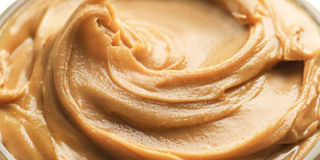Fruit jam and peanut butter

I have wanted to process fruit jam and peanut butter for commercial purposes. My concern has been on food safety and the best preservatives to use (if necessary) or if there options of natural preservatives. Do you have a department where you offer tailored advice for specific products and possibly testing for food safety? James Ochan
Dear James
While producing value added products such as fruit jams and peanut butter, practising proper hygiene and food safety techniques will help the products have an extended shelf-life and prevent food-borne illnesses.
UIRI has experts who can assist during product formulation development of products such as fruit jam or peanut butter.
The same experts can offer guidance in obtaining product certification from UNBS assuring product safety to consumers.
Commercial peanut butter often uses various additives and preservatives to prolong the shelf-life of peanut butter.
The hydrogenated vegetable oil is used as an emulsifier and stabilises the butter by preventing the peanut oil from separating from the solid peanut mass, which helps to improve its shelf-life and overall appearance.
It also contributes to the smooth creaminess of the peanut butter. Peanut butter also uses sodium benzoate as a preservative, which can prevent mould growth, spoilage and help retain freshness.
However, the active ingredient that actually does the preserving is the benzoic acid. There is no apparent risks associated with the use and consumption of sodium benzoate as a preservative, and it is permitted for use by UNBS.
Butylated hydroxyanisole (BHA) is another additive and is used in foods with high fat content, such as peanut butter.
Even though sugar helps preserve jams, moulds can grow on the surface of these products. No preservatives are required for jam, proper sterilisation and jam filling techniques will ensure extended shelf-life.
Answered by Caroline Makau, Department of Dairy, Food Science and Technology, Egerton University.
I have been feeding my local chicken with layers mash. I recently supplied the eggs to one of the supermarket but later the manager told me they will be buying my eggs at a lower price since they are similar to the ordinary layers eggs because they lack the yellow yolk as other local eggs. He then advised me to stop feeding the chicken on layers mash if I want them to produce local eggs. What should I feed my chicken to get high quality local eggs? Does layers mash reduce the eggs quality? Paul
Dear Paul
Local eggs are known for their deep-yellow yolk because of their diet, which is heavily dependent on scavenged feed resources, that is the green leafy feeds. The green feeds contain carotenoids, substance that is responsible for the yolk colour.
Birds that feed on maize (or yellow maize), alfalfa (lucerne) or grass meals will often lay deep-yellow-yolked eggs, those on wheat or barley diet will lay light-yellow yolked eggs while those on high cottonseed cake diet will have greenish yolked eggs. For birds fed on formulated feeds, the difference comes in because the carotenoid content in feed sources such as maize maybe weakened or lost when used in rations.
It is important to note that the yolk colour does not affect the nutritive value of the eggs since it’s just a reflection of whether carotenoids are present or not.
Answered by Sophie Miyumo an agronomist
I have plans to start an avocado farm but I read somewhere about crops being affected by eucalyptus trees. My farm is surrounded by eucalyptus trees, so my question is, do I need to cut them down? Philemon
Dear Philemon
Eucalyptus are allelopathic, which means that the trees produce poisonous substances that hinder the growth of other crops.
Eucalyptus trees also drain a lot of water from the soil. Therefore, if you plant the avocado trees near the eucalyptus, the former will lack water.
You don’t have to cut the eucalyptus unless you want to sell them. Just plant your avocado trees about 25m away from the eucalyptus.
Answered by Carol Mutua, Department of Crops, Horticulture and Soils, Egerton University


